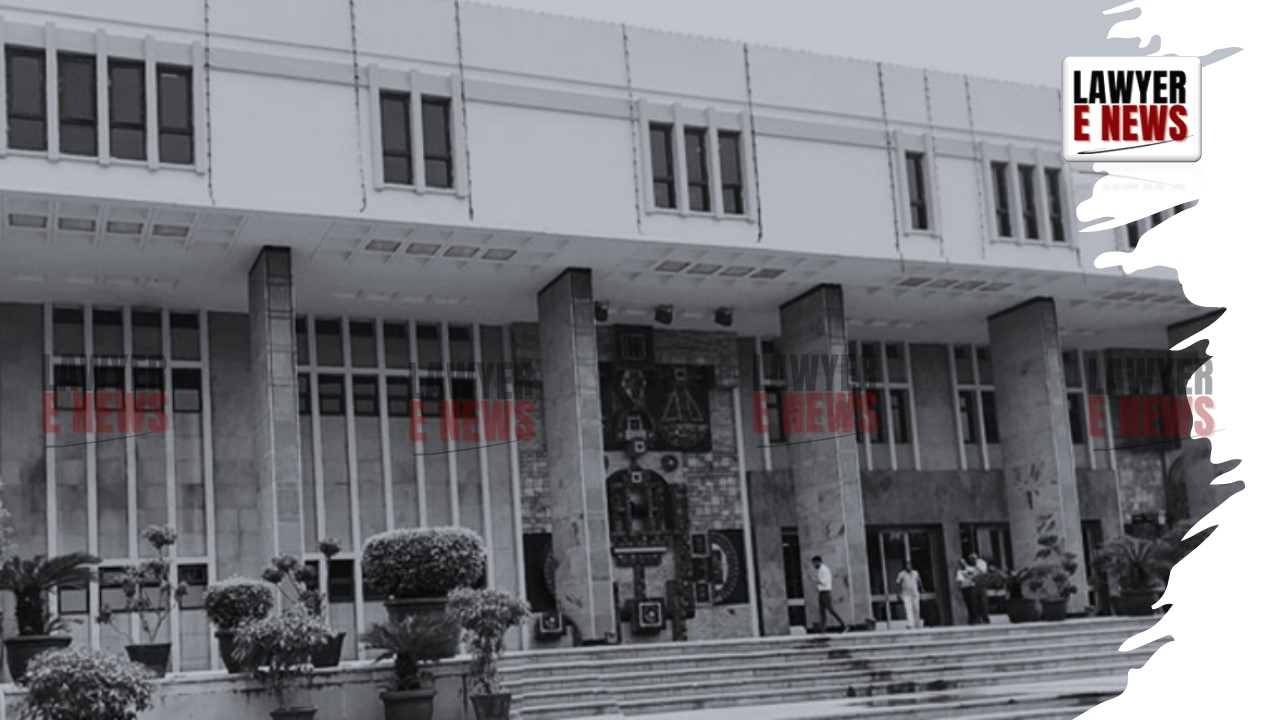-
by Admin
15 February 2026 2:36 AM



Delhi High Court granted an ad-interim ex-parte injunction restraining several individuals, digital platforms, and media outlets from publishing or disseminating defamatory content against Mr. Vinay Maheshwari, a renowned media professional and business executive. The judgment emphasized the right to reputation under Article 21 of the Constitution, while balancing it with the freedom of speech and expression under Article 19(1)(a).
The plaintiff, Mr. Vinay Maheshwari, alleged that defamatory tweets by Defendant No. 1 (Manoj Manchu), a Telugu actor, accused him of financial irregularities and manipulative conduct in a family dispute involving the Manchu family. The allegations were amplified by media outlets such as IndiaGlitz, GreatAndhra.com, and ABP Network, among others, which published speculative and unfounded claims linking the plaintiff to the feud.
The defamatory content included articles, videos, and tweets circulated on social media and digital platforms, including YouTube (Defendant No. 4), portraying the plaintiff as a divisive figure within the family. The plaintiff claimed these baseless allegations caused irreparable harm to his personal and professional reputation.
The plaintiff sought relief under Order XXXIX Rules 1 and 2 of the CPC to prevent further dissemination of defamatory material and to compel the removal of existing content.
Hon’ble Justice Swarana Kanta Sharma observed that the freedom of speech under Article 19(1)(a) is not absolute and is subject to reasonable restrictions under Article 19(2), particularly in cases of defamation. The Court held that the plaintiff successfully demonstrated a prima facie case of defamation and irreparable harm to his reputation.
"Reputation is an integral part of dignity. Reckless, baseless allegations causing irreparable harm to an individual’s standing cannot be shielded under Article 19(1)(a)."
The defamatory tweets, articles, and videos accused the plaintiff of financial mismanagement and manipulative actions without any substantiating evidence. The Court found that such unverified claims, published by media outlets and amplified on digital platforms, had the potential to cause lasting damage to the plaintiff’s professional standing.
The Court relied on precedents, including R. Rajagopal v. State of Tamil Nadu (1994), which held that reckless and unverified allegations cannot be justified as free speech, and on Hanuman Beniwal v. Vinay Mishra (2024), which reiterated that reputation is an essential facet of personal dignity.
The plaintiff alleged that defamatory videos were hosted on YouTube, owned by Defendant No. 4 (Google). However, the Court deferred relief as the plaintiff failed to provide translations of the Telugu content or details of specific uploaders. The Court directed Google to act in good faith upon receiving valid takedown requests supported by proper documentation.
The Court granted an ad-interim ex-parte injunction against Defendants Nos. 1, 3, 6, 7, 8, 10, and 11, directing them to:
1. Refrain from publishing, sharing, or disseminating defamatory content against the plaintiff.
2. Remove existing defamatory content, including tweets, articles, and videos, within one week.
3. Ensure compliance with Order XXXIX Rule 3 of CPC within two weeks.
In a related development, HT Media Ltd. (Defendant No. 9) agreed to publish the plaintiff's version of events to ensure balanced reporting, satisfying the plaintiff’s claims against it at this stage.
The Court highlighted that defamatory content published by Defendants Nos. 6 to 11 relied on speculative and unverified sources, portraying the plaintiff in a false and negative light. It observed that such content tarnished the plaintiff’s professional credibility and personal reputation, causing irreparable harm.
The judgment also acknowledged the increasing role of digital platforms in amplifying defamatory narratives and emphasized their responsibility to act on valid takedown requests.
The Court further clarified that the observations made in the order were prima facie in nature and did not prejudice the final outcome of the case.
The Delhi High Court’s ruling underscores the importance of protecting an individual’s reputation in the digital age, where false narratives can spread rapidly across social media and digital platforms. By granting interim relief to the plaintiff, the Court balanced the right to reputation with the freedom of speech, setting a precedent for responsible reporting and content moderation in defamation cases.
Date of Judgment: December 24, 2024
